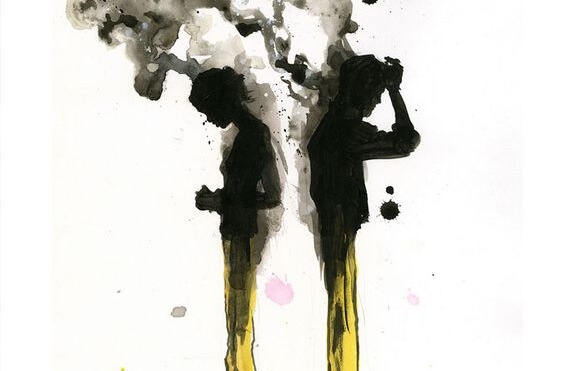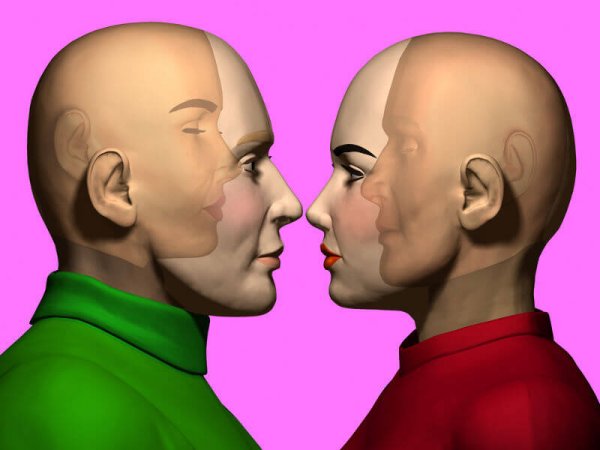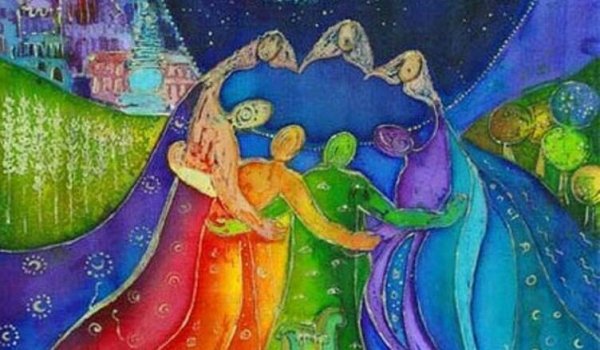Empathy: What Makes an Empathetic Person?


Written and verified by the psychologist Valeria Sabater
Empathy is an art, an exceptional, genetically programmed ability our brain has to tune into the feelings and intentions of others. But here’s the problem: not everyone manages to “light” this fire that illuminates the way to the most solid and rewarding relationships. What makes an empathetic person?
Something we hear a lot is “that person has no empathy, “he is so egotistical, he doesn’t have an ounce of empathy in him.” Well, something important to clear up right from the beginning is that our brain’s architecture is well-suited for those “connections.”
Empathy, at the end of the day, is another strategy that helps our species survive: it lets us understand the person in front of us and makes it easier for us to establish a deep relationship with them.
“We have two ears and one mouth so that we can listen twice as much as we speak.”
-Epithet-
The part of the brain where neuroscience has placed empathy is in the right side of the supramarginal gyrus, a point just between the parietal, temporal, and frontal lobes. Thanks to the activity of these neurons we are able to separate our emotional world and our cognition in order to be more receptive towards others at any given moment.
Now that we’ve cleared that up, the next question would be…“if we all have that brain structure, why are some people more or less empathetic than others, and some even have a complete and total lack of it?”
We know, for example, that one main characteristic of anti-social personality disorder is a lack of emotional connection with others. But, putting aside the clinical or psycho-pathological aspects, there are a lot of people who simply never develop this capability.
Early experiences, education models, and even a person’s social context can make this amazing faculty weaken. Instead these things can move a person towards very clear self-centeredness. The problem has gotten so bad that a study done by the University of Michigan revealed that college students nowadays are 40% less empathetic than they were in the 80’s and 90’s.
Life today has so many stimulants and distractions for young and not-so-young people that we stop being fully conscious of the present moment or even the person right in front of us. There are people more in tune with their electronic devices than other people’s feelings, and that’s a problem we should reflect on.
To dig a little deeper into this topic, we suggest getting familiar with the traits that define people who do have the kind of authentic, functional, and essential self-esteem they need to build healthy relationships and develop social skills.

Functional Empathy vs. Projected Empathy
One basic aspect it will help to explain first is what we understand as functional empathy. It may surprise you, but it’s not enough to simply “have empathy” if you want to build solid relationships or be socially effective in your daily interactions.

It’s a fact that a lot of the people who are capable of empathizing emotionally and cognitively with others (they can feel and understand what’s going on) don’t help channel and properly manage the discomfort. Instead, they intensify it.
So, the person capable of empathy is able to put themselves in another person’s shoes, knowing at any point in time how to be helpful in this process without doing damage or acting like a mirror and amplifying the pain. Because sometimes it’s not enough to understand, you have to know how to ACT.
True Empathy Leaves Judgement Aside
Judging others keeps us from being able to genuinely get close to them. They place us on a team, on one side of the glass, giving us a very limited perspective: ours. Also, it should be said that it’s not exactly easy to listen to someone without internal judgments. It’s hard to listen without labeling that person as competent or awkward, strong or lost, mature or immature.
But we all do it to some degree. If we could take that lens off, we’d see people in a more authentic way. We would empathize much better and understand the other person’s emotions.
It’s something we should practice daily. According to various studies, it’s a skill that grows as we get older. Because empathy, like the ability to listen without judgment, increases with experience.
Empathetic People have Good Emotional Awareness
Empathy makes up an indispensable part of Emotional Intelligence. This area of science or psychology and personal growth is in fashion, but…have we truly learned how to manage our emotional world well?
- The truth is not really. Nowadays, we still see a lot of people casually throw around terms like self-control, resilience, proactivity, assertiveness…But they lack a true emotional awareness and continue to be carried around by anger, rage, or frustration like a four year-old.
- Other people, however, think that being “empathetic” means suffering. As if emotions should be contagious and you feel what someone else feels in order to experience the same pain as them, like copying their pain.
That’s not enough. We need to understand that healthy, functional, and constructive empathy comes from a person managing their own emotions, having high self-esteem, knowing how to set limits, and skillfully walking alongside other people, emotionally and intellectually.

Empathetic People and Social Commitment
Neuroscience and modern psychology define empathy as the social glue that holds people together and creates a real, strong commitment between them.

Empathetic people believe in social commitment. Because survival isn’t a business and shouldn’t be seen as political, self-centered, or egotistical. Surviving is more than just our heart beating. It’s having dignity, respect, feeling valued, free, and part of something bigger where everyone is valuable.
That’s true empathy: putting ourselves in someone else’s place and sharing an existence full of peace and harmony. It will take work.
Bibliographical References
-Luis Moya (2013) “Empatía, entenderla para entender a los demás”. A Coruña: Plataforma Actual
-Frans de Waal (2009) “The Age of Empathy: Nature’s Lessons for a Kinder Society” New York: Three Rivers Press
Empathy is an art, an exceptional, genetically programmed ability our brain has to tune into the feelings and intentions of others. But here’s the problem: not everyone manages to “light” this fire that illuminates the way to the most solid and rewarding relationships. What makes an empathetic person?
Something we hear a lot is “that person has no empathy, “he is so egotistical, he doesn’t have an ounce of empathy in him.” Well, something important to clear up right from the beginning is that our brain’s architecture is well-suited for those “connections.”
Empathy, at the end of the day, is another strategy that helps our species survive: it lets us understand the person in front of us and makes it easier for us to establish a deep relationship with them.
“We have two ears and one mouth so that we can listen twice as much as we speak.”
-Epithet-
The part of the brain where neuroscience has placed empathy is in the right side of the supramarginal gyrus, a point just between the parietal, temporal, and frontal lobes. Thanks to the activity of these neurons we are able to separate our emotional world and our cognition in order to be more receptive towards others at any given moment.
Now that we’ve cleared that up, the next question would be…“if we all have that brain structure, why are some people more or less empathetic than others, and some even have a complete and total lack of it?”
We know, for example, that one main characteristic of anti-social personality disorder is a lack of emotional connection with others. But, putting aside the clinical or psycho-pathological aspects, there are a lot of people who simply never develop this capability.
Early experiences, education models, and even a person’s social context can make this amazing faculty weaken. Instead these things can move a person towards very clear self-centeredness. The problem has gotten so bad that a study done by the University of Michigan revealed that college students nowadays are 40% less empathetic than they were in the 80’s and 90’s.
Life today has so many stimulants and distractions for young and not-so-young people that we stop being fully conscious of the present moment or even the person right in front of us. There are people more in tune with their electronic devices than other people’s feelings, and that’s a problem we should reflect on.
To dig a little deeper into this topic, we suggest getting familiar with the traits that define people who do have the kind of authentic, functional, and essential self-esteem they need to build healthy relationships and develop social skills.

Functional Empathy vs. Projected Empathy
One basic aspect it will help to explain first is what we understand as functional empathy. It may surprise you, but it’s not enough to simply “have empathy” if you want to build solid relationships or be socially effective in your daily interactions.

It’s a fact that a lot of the people who are capable of empathizing emotionally and cognitively with others (they can feel and understand what’s going on) don’t help channel and properly manage the discomfort. Instead, they intensify it.
So, the person capable of empathy is able to put themselves in another person’s shoes, knowing at any point in time how to be helpful in this process without doing damage or acting like a mirror and amplifying the pain. Because sometimes it’s not enough to understand, you have to know how to ACT.
True Empathy Leaves Judgement Aside
Judging others keeps us from being able to genuinely get close to them. They place us on a team, on one side of the glass, giving us a very limited perspective: ours. Also, it should be said that it’s not exactly easy to listen to someone without internal judgments. It’s hard to listen without labeling that person as competent or awkward, strong or lost, mature or immature.
But we all do it to some degree. If we could take that lens off, we’d see people in a more authentic way. We would empathize much better and understand the other person’s emotions.
It’s something we should practice daily. According to various studies, it’s a skill that grows as we get older. Because empathy, like the ability to listen without judgment, increases with experience.
Empathetic People have Good Emotional Awareness
Empathy makes up an indispensable part of Emotional Intelligence. This area of science or psychology and personal growth is in fashion, but…have we truly learned how to manage our emotional world well?
- The truth is not really. Nowadays, we still see a lot of people casually throw around terms like self-control, resilience, proactivity, assertiveness…But they lack a true emotional awareness and continue to be carried around by anger, rage, or frustration like a four year-old.
- Other people, however, think that being “empathetic” means suffering. As if emotions should be contagious and you feel what someone else feels in order to experience the same pain as them, like copying their pain.
That’s not enough. We need to understand that healthy, functional, and constructive empathy comes from a person managing their own emotions, having high self-esteem, knowing how to set limits, and skillfully walking alongside other people, emotionally and intellectually.

Empathetic People and Social Commitment
Neuroscience and modern psychology define empathy as the social glue that holds people together and creates a real, strong commitment between them.

Empathetic people believe in social commitment. Because survival isn’t a business and shouldn’t be seen as political, self-centered, or egotistical. Surviving is more than just our heart beating. It’s having dignity, respect, feeling valued, free, and part of something bigger where everyone is valuable.
That’s true empathy: putting ourselves in someone else’s place and sharing an existence full of peace and harmony. It will take work.
Bibliographical References
-Luis Moya (2013) “Empatía, entenderla para entender a los demás”. A Coruña: Plataforma Actual
-Frans de Waal (2009) “The Age of Empathy: Nature’s Lessons for a Kinder Society” New York: Three Rivers Press
This text is provided for informational purposes only and does not replace consultation with a professional. If in doubt, consult your specialist.







